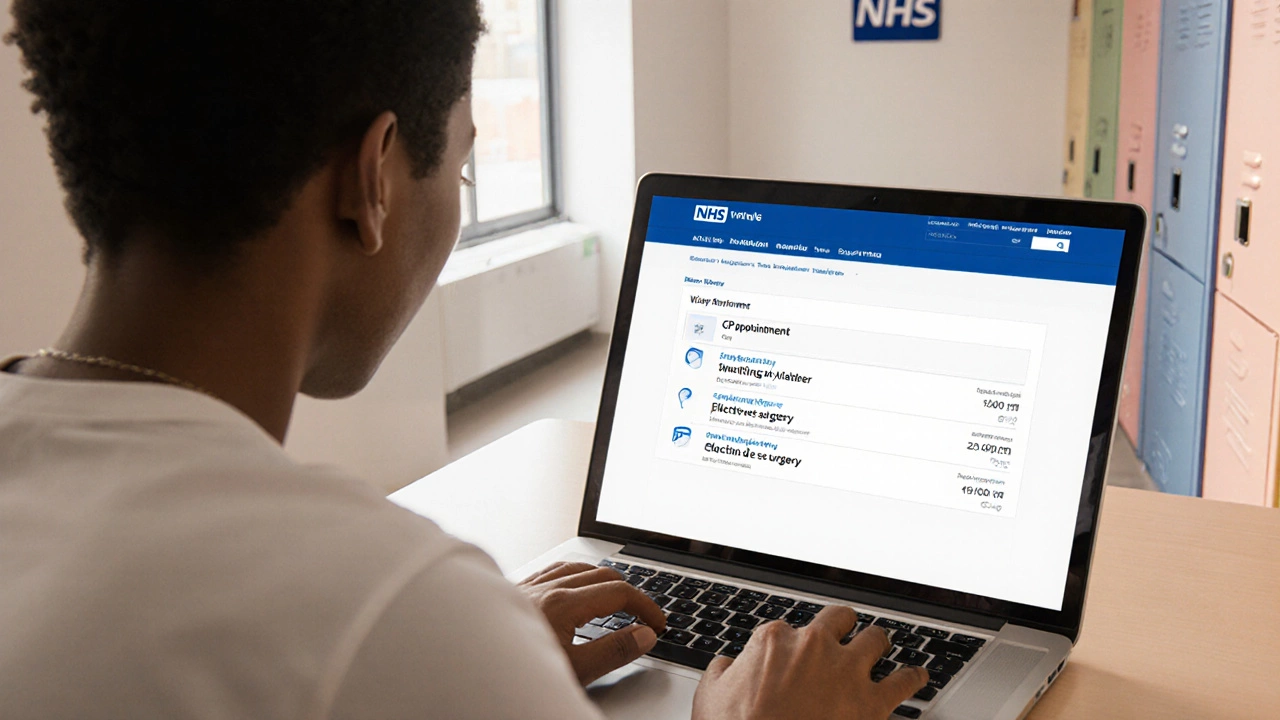NHS Waiting Times – Why They’re Long and How to Speed Up Your Care
Ever booked an NHS appointment only to hear "you’ll be seen in a few weeks"? You’re not alone. Waiting lists have grown across the UK, and the frustration is real. Below we break down the main reasons behind the delays and give you easy, actionable steps to get care sooner.
What’s Behind the Long Waits?
The NHS is public, which means it has to balance demand with a limited budget. When more people need a service than the system can handle, waiting times rise. Key drivers include:
- Staff shortages: Fewer doctors and nurses mean fewer appointments per day.
- Population growth: More patients strain existing slots.
- Specialist bottlenecks: Certain procedures, like MRI scans or physiotherapy, have fewer machines and rooms.
- Funding limits: Budget cuts force clinics to prioritize urgent cases, pushing routine visits back.
Understanding these factors helps you see that the delay isn’t personal – it’s systemic.
Tips to Shorten Your Wait
While you can’t control staffing levels, you can take steps to move your appointment forward:
- Ask for a “same‑day” slot. Call the GP surgery early and explain why your issue is urgent. Sometimes a brief call can free up a cancelled slot.
- Check alternative NHS locations. Nearby clinics or hospitals may have shorter lists. A quick online search of the NHS service finder can reveal hidden options.
- Use the NHS e‑Referral Service (eRS). If you’re referred to a specialist, eRS lets you track your position on the list and receive updates when earlier dates open up.
- Consider private or hybrid care. For non‑emergency cases, a short private consultation can get you a diagnosis fast, then you can return to the NHS for treatment.
- Leverage community resources. Pharmacies, walk‑in centers, and urgent care hubs often handle minor issues without a formal appointment.
These tricks won’t eliminate waiting times, but they can shave weeks off your journey.
Another practical move is to keep your health records handy. When you finally see a clinician, having test results, medication lists, and symptom logs speeds up the consultation and reduces the need for repeat appointments.
Finally, stay informed. The NHS publishes waiting‑time statistics for most services on its website. Knowing the average wait for your specific treatment helps you set realistic expectations and spot unusually long delays that may warrant a complaint.
Long waits are frustrating, but you’re not powerless. By being proactive, exploring alternative NHS routes, and using digital tools, you can often get the care you need much faster than you’d think.

Does the NHS have a waiting list? Here's what's really happening in 2026
The NHS has over 7.8 million people waiting for routine treatment in 2026. Learn how long waits really are, why they’re growing, and what you can do while you wait.
Categories: Healthcare Advice
0

NHS Waiting Times 2025: How Long Do You Really Wait for Care?
Discover the current NHS waiting times for GP appointments, specialist referrals, and elective surgery in 2025, learn why delays happen, and find practical steps to check or reduce your own wait.
Categories: Healthcare Advice
0

Private Health Insurance UK: What’s the Point in 2025? NHS vs Private Care Explained
Is private health insurance worth it in the UK in 2025? Clear, current guide on what it buys you, when it’s worth it, costs, exclusions, tax, and smart alternatives.
Categories: Healthcare Insurance UK
0

Navigating NHS Waiting Lists: Practical Tips and Alternatives
Facing long NHS waiting lists can be frustrating and challenging. Exploring practical strategies and lesser-known alternatives can help patients manage their health care needs more effectively. This article offers tips on how to potentially skip or shorten waiting times using a variety of resourceful methods. It looks at the role of private health insurance and other healthcare options to ensure timely medical treatment. Delve into this comprehensive guide to better understand how to navigate and overcome NHS waiting challenges.
Categories: Healthcare Advice
0
